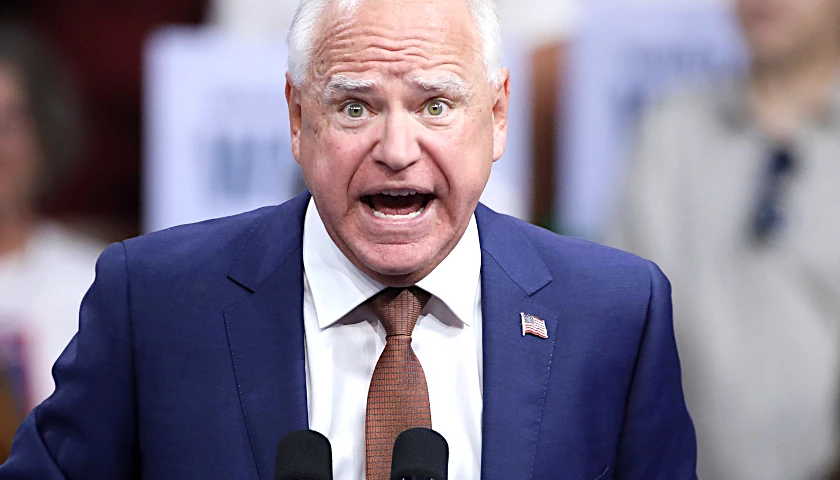by Mary Margaret Olohan
The Lincoln Project was reportedly aware of allegations against co-founder John Weaver as early as June 2020, but pushed ahead with raising massive donations — and $50 million of these donations has gone to firms controlled by the Lincoln Project’s leaders.
 Lincoln Project members were made aware of at least 10 allegations of harassment against Weaver in June 2020, the Associated Press reported. The group did not take action against Weaver as it continued its high-profile work combatting the re-election of former President Donald Trump and expressed shock in January over the allegations against its cofounder.
Lincoln Project members were made aware of at least 10 allegations of harassment against Weaver in June 2020, the Associated Press reported. The group did not take action against Weaver as it continued its high-profile work combatting the re-election of former President Donald Trump and expressed shock in January over the allegations against its cofounder.
“The totality of his deceptions are beyond anything any of us could have imagined and we are absolutely shocked and sickened by it,” the group said in a January statement.
The Lincoln Project today released the following statement. pic.twitter.com/pGl6WJCQhD
— The Lincoln Project (@ProjectLincoln) February 12, 2021
The Lincoln Project: What Is It
Comprised of GOP consultants and former Republican officials, the Lincoln Project quickly found after its founding as a super PAC in November 2019 that “being anti-Trump was becoming very good for business,” according to the AP.
Though the Lincoln Project’s efforts were very favorably received on social media and often went viral, top Democratic Super PAC Priorities USA found that they did not do much to convince battleground voters to support Biden’s presidential campaign, the Daily Beast previously reported.
Its leaders included former Republican strategists and advisers to John McCain, Steve Schmidt and Reed Galen, conservative attorney George Conway, former New Hampshire Republican Chair chair Jennifer Horn, and political ad maker Rick Wilson.
Conway left the Lincoln Project in August 2020 and Horn left the group last week.
The group has amassed over 2 million followers on Twitter and raised $90 million in donations, the AP reported. A third of that sum, $27 million, was directly used to pay for on air or online advertisements during the 2020 election cycle, according to the AP.
Where Does The Cash Go?
Firms controlled by the Lincoln Project’s leaders received $50 million dollars of the Lincoln Project donations, the AP reported, leaving tens of millions to go towards production costs, overhead, and consulting fees that members of the group collected.
Brendan Fischer, an attorney with the nonpartisan Campaign Legal Center in Washington, told the AP that “it raises questions about where the rest of the money ultimately went.”
“Generally speaking, you’d expect to see a major super PAC spend a majority or more of their money on advertisements and that’s not what happened here,” Fischer said.
Campaign finance disclosures show that most of the Lincoln Project’s cash was split among Lincoln Project founders’ firms, the AP reported. This includes $27 million to Galen’s company and $21 million to former Lincoln Project member Ron Steslow’s boutique firm.
The publication noted that the Lincoln Project masked how much money it earned through strategies similar to ones used by former President Donald Trump’s campaign. Weaver and Wilson were likely paid as subcontractors to several firms that collected payments, though they were not listed in publicly available records, the AP reported, noting that Schmidt, who collected $1.5 million in December 2020 but returned the sum.
“We fully comply with the law,” Schmidt told the publication. “The Lincoln Project will be delighted to open its books for audit immediately after the Trump campaign and all affiliated super PACs do so, explaining the cash flow of the nearly $700 million that flowed through their organizations controlled by Brad Parscale and Jared Kushner.”
The Lincoln Project also has helped out founders suffering financially, the AP reported. Weaver paid off $313,000 in back taxes dating back to 2011 that he owed to the IRS, according to the publication, and still owes $340,000 in back rent in Texas after his family had to shut down a children’s boutique that they ran.
Schmidt also bought a $1.4 million home in Utah using money earned during his time at the Lincoln Project, according to the AP. He is now reselling the home for $2.9 million.
Kicking Co-Founder Horn To The Curb
Horn said she left the Lincoln project following news of Weaver’s “grotesque” behavior, though the Lincoln Project released a public statement accusing her of leaving after trying to obtain a $250,000 signing bonus and a $40,000-a-month consulting contract.
The group published co-founder Horn’s private messages with 19th News correspondent Amanda Becker Thursday night on Twitter, then deleted the tweets after backlash. The series of messaging shows Becker and Horn discussing, mostly off the record on Horn’s part, Horn’s reasons for leaving the Lincoln Project, her compensation and other Lincoln Project co-founders.
Horn, who left the Lincoln Project last week, tweeted Thursday evening that the Lincoln Project did not have permission to publish her private messages, raising questions about whether the group may face legal troubles. She did not immediately respond to a request for comment from the DCNF.
It is not immediately clear how the Lincoln Project obtained Horn’s messages. The Lincoln Project has not responded to requests for comment from the Daily Caller News Foundation.
“Recently published stories about the Lincoln Project are filled with inaccuracies, incorrect information, and reliant exclusively on anonymous sources,” the Lincoln Project said in a Thursday night statement. “However there is a central truth in all of them that must be reckoned with and that is John Weaver’s appalling conduct and the abuse he inflicted upon people.”
The group promised that it is organizing a review of Weaver’s relationship with the Lincoln Project and announced that anyone who believes their non-disclosure agreement prevents them from sharing important information about Weaver should contact the Lincoln Project for a release.
The Weaver Allegations: How Long Did Lincoln Project Know?
Lincoln Project leaders have said they did not know about the allegations against Weaver until January, though co-founder Schmidt said that the organization’s leaders found from social media posts this summer that Weaver might have relationships with men, the Times reported.
Sources familiar with the situation told the AP that after someone working for the Lincoln Project payroll sent an email to co-founder Steslow about allegations against Weaver in June, Steslow quickly brought the email to Galen’s and Sanderson’s attention.
Schmidt would not confirm the email’s existence to the AP, but said if it existed, it was not shared with Lincoln Project leadership.
The AP’s sources said that the organization’s leaders discussed the allegations on multiple phone calls in June and in August, when Weaver went on medical leave.
The allegations would not gain serious media attention until January of this year, when conservative writer Ryan Girdusky, alleged Jan. 9 that multiple young men had sent him screenshots of predatory messages from Weaver. He followed up with a story in The American Conservative describing Weaver’s alleged “predatory actions” and alleged grooming of young men.
Several weeks later, the New York Times reported Sunday that Weaver sent sexually provocative and unsolicited messages to young men for years. The publication talked to 21 young men who said that the messages suggested that Weaver could help them get jobs in politics.
One of these young men was 14 when Weaver messaged him, the publication reported.
None of the men accused Weaver of unlawful conduct and the messages only led to one consensual sexual encounter, according to the Times. However, the men described feeling preyed upon by Weaver, an older and influential man with the potential to help them gain the job they wanted.
– – –
Mary Margaret Olohan is a reporter at Daily Caller News Foundation.
Photo “John Weaver” by MSNBC.








